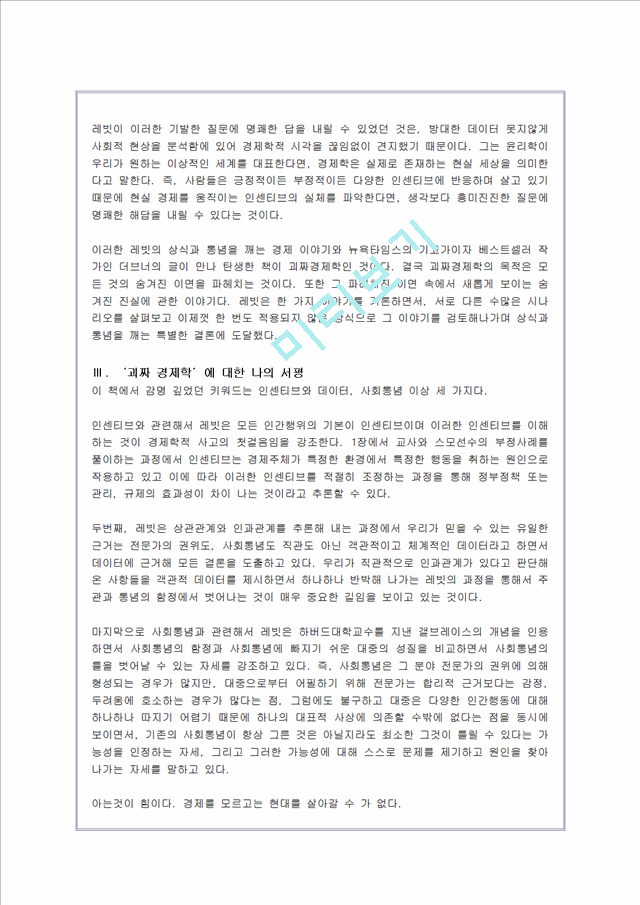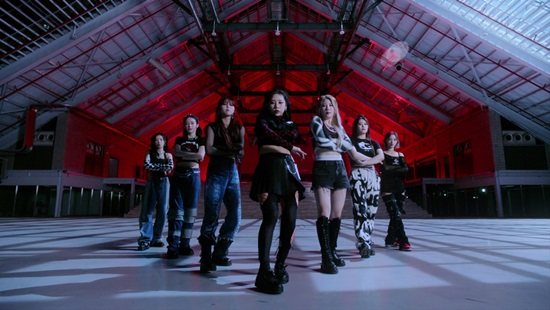괴짜 뜻
Korean language has been gaining popularity due to the rise of K-Pop and Korean dramas. However, for non-native speakers, understanding the language can be challenging, especially when it comes to 괴짜 뜻 (gwechja tteut), which means “strange or bizarre meanings” in English.
A 괴짜 뜻 is a type of word or phrase in which the meaning appears in an unimaginable or eccentric form. It can be confusing, contradictory, or opposite to their ordinary definitions. This article will explore 괴짜 뜻 and provide tips on how to understand them.
뜻이 상상도 못한 형태로 나타나는 괴짜 뜻
There are various examples of 괴짜 뜻 in the Korean language that can confuse non-native speakers. For instance, “눈치” (nunchi) commonly translates as “the ability to sense or read the atmosphere.” However, it can also be used in a sarcastic context when someone isn’t picking up on indirect comments.
Another example is “연애” (yeonae), which translates to “romantic relationships.” However, the phrase can also be used to describe the act of “dating” in general, regardless of the existence of romantic feelings.
뜻이 혼란스러운 괴짜 뜻
Some words in Korean have unexpected meanings, which can lead to confusion. For example, “긴장” (ginjang) means “nervousness or tension.” Still, it can also be used to describe a person who is “determined or driven,” which is entirely opposite to nervousness.
Another example is “부장” (bujang), which refers to “department head” or “manager.” However, it also refers to “unmarried men” in their 30s and above, which can be confusing for a non-native speaker.
같은 말인데 의미가 괴짜로 달라지는 뜻
There are instances in the Korean language when multiple words with the same sound can have completely different meanings. For example, “바람” (baram) can mean “wind,” but it can also mean “cheating” or “having an affair.”
Another example is “키” (ki), which can mean “height.” However, it can also be confused with “기” (gi), which means “energy” or “air.”
일반적인 뜻과 반대인 괴짜 뜻
In some cases, 괴짜 뜻 can have the opposite meaning to the typical definition of the word. For instance, “멋있다” (meotjita), which means “to be cool or stylish,” can also mean “to be unconventional and difficult to understand.”
Another example is “끝” (kkeut), which means “the end.” However, it can also be used to represent extreme fatigue. This kind of 괴짜 뜻 is common in colloquial language.
언어문화와 관계된 괴짜 뜻
Korean language and culture are interconnected, so understanding the 괴짜 뜻 requires some contextual knowledge. For example, “물음표” (mureumpyo) translates to “question mark.” However, it is also used to describe someone who is “curious or wants to know more.”
Another example is “이름” (ireum), which means “name.” It can also refer to one’s reputation or public image, which is vital in Korean culture.
괴짜 뜻을 이해하는 팁과 요령
Learning Korean can be challenging, but understanding the 괴짜 뜻 is critical in proper communication. Here are some tips to help you understand and use them correctly:
1. Learn the context: 괴짜 뜻 can be challenging to interpret without proper context. Understanding the situation and conversational cues will make it easier to decipher.
2. Look for explanations: When you come across a 괴짜 뜻, don’t immediately assume it’s an error. Look for explanations in textbooks, dictionaries, or online forums that can help you understand the meaning.
3. Use 괴짜 뜻 in context: Try to use 괴짜 뜻 in sentences and conversations to get a better grasp of them. It will also help you memorize them and enable you to use them in future conversations.
괴짜 특성
Korean language is known for its 괴짜 특성 (bizarre characteristics), which make it unique and challenging to learn. Some 괴짜 특성 of the Korean language are:
1. The use of honorifics: Korean culture values respect, and the language reflects this. There are specific honorifics used when speaking to elders, superiors, or strangers.
2. Syllable structure: Korean words have a syllable structure that follows a simple pattern. It consists of a vowel sound followed by at least one consonant.
3. Suffixes: Korean language uses a wide variety of suffixes, which can be added to root words to create different meanings.
괴짜 테스트
For those who want to test their knowledge of Korean 괴짜 뜻, there are 괴짜 테스트 (bizarre tests) online. These are designed to assess the understanding and recognition of 괴짜 뜻 in the Korean language.
괴짜 영어로
Korean 괴짜 뜻 can be challenging to translate into English, as they often don’t have an equivalent meaning. However, some 괴짜 뜻 can be translated as follows:
1. “뻥치지마” (ppeongchijima): “Don’t lie” or “Stop bluffing.”
2. “반칙” (banchik): “Cheating” or “Violation.”
3. “쌔끈하다” (ssaekkeunhada): “Exciting” or “Thrilling.”
괴짜가족
Korean dramas and films often portray the 괴짜가족 (bizarre families) theme. These are families with members who have distinctive personality traits and often have eccentric behavior.
괴짜 유튜버
Korean 유튜버 (YouTubers) often create content with 괴짜 뜻 as a theme. For instance, some YouTube channels translate and explain 괴짜 뜻 for international audiences.
활달 뜻
Some Korean words have 활달 뜻 (lively meanings), in which the words sound lively and give life to the language. For instance, “비올라” (biolla), which means “to cheer someone up,” sounds energetic and upbeat.
충동적 뜻
Some Korean words have 충동적 뜻 (impulsive meanings), such as “홀림” (hollim), which means “to be possessed by a spirit or influence.” These words are often used in theater, film, or literature to create an emotional response from the audience.
괴짜 메타몽괴짜 뜻
Korean language contains 괴짜 메타몽괴짜 뜻 (bizarre metamorphosis meanings), in which words change their meaning based on context. For example, “수” (su) means “water,” but it can also refer to a “number of items” or “salary or wages” depending on the context.
FAQs
1. What is the difference between 괴짜 뜻 and regular meanings?
괴짜 뜻 refers to strange or unexpected meanings that differ from regular definitions. They can be confusing or ambiguous to non-native speakers.
2. How can I understand 괴짜 뜻?
Understanding the 괴짜 뜻 requires context and knowledge of Korean culture. Practice using them in context to build familiarity and comprehension.
3. Can I find 괴짜 뜻 online?
Yes, there are several online resources that can help with 괴짜 뜻, including dictionaries, forums, and social media groups.
4. How can I use 괴짜 뜻 in conversations?
Try using 괴짜 뜻 in sentences and dialogues to improve your ability to recognize and comprehend them. It will also help you integrate them into your everyday Korean language speech.
사용자가 검색한 키워드: 괴짜 뜻 괴짜 특성, 괴짜 테스트, 괴짜 영어로, 괴짜가족, 괴짜 유튜버, 활달 뜻, 충동적 뜻, 괴짜 메타몽
Categories: Top 36 괴짜 뜻
세상에 이런 일이 사상 독보적 캐릭터 #Shorts
여기에서 자세히 보기: thichnaunuong.com
괴짜 특성
The concept of 괴짜 특성 is deeply ingrained in Korean culture, where conformity and social norms are highly valued. As such, those who deviate from these norms are often seen as outsiders, and their eccentricities are viewed with suspicion or even hostility.
Despite this, there is also a fascination with 괴짜 특성 in Korean culture. Many individuals are drawn to those who exhibit unusual behavior or traits, and there is a certain level of admiration for those who are able to embrace their eccentricities and stand out from the crowd.
In this article, we will go in-depth on the topic of 괴짜 특성, exploring its history, cultural significance, and impact on individuals and society.
History of 괴짜 특성 in Korea
The concept of 괴짜 특성 has a long history in Korea, dating back to the Joseon Dynasty (1392-1910). During this time, there was a strong emphasis on Confucianism and societal norms, which placed a great deal of importance on hierarchical relationships and respect for authority.
As a result, those who deviated from these norms were often ostracized or even punished. This included individuals who exhibited eccentric behavior, such as artists, poets, and scholars, who were seen as challenging the established order and threatening societal stability.
In the modern era, the term 괴짜 특성 has taken on a broader meaning, encompassing a wider range of unusual or unconventional traits and behaviors. However, the underlying cultural values that spawned this concept remain deeply ingrained in Korean society.
Cultural significance of 괴짜 특성
In Korean culture, there is a tension between conformity and individuality that is reflected in the concept of 괴짜 특성. On the one hand, there is a strong desire to conform to societal norms and expectations, which are seen as essential for maintaining social harmony and stability.
On the other hand, there is also a desire for self-expression and individuality, which can manifest in unconventional behavior or personality traits.
This tension has given rise to a complex and often contradictory view of 괴짜 특성 in Korean culture. On the one hand, there is a certain level of admiration for those who are able to embrace their eccentricities and stand out from the crowd.
This can be seen in the popularity of 괴짜 celebrities, such as comedian Yoo Jae-suk, who is known for his quirky humor and offbeat personality. Many young people in Korea see these celebrities as role models, and aspire to emulate their unconventional style and attitude.
At the same time, there is also a strong stigma attached to 괴짜 특성, particularly when it manifests in ways that are seen as disruptive or threatening to the social order. This can result in isolation, discrimination, or even outright hostility toward individuals who exhibit unusual behavior or traits.
Impact of 괴짜 특성 on individuals and society
The impact of 괴짜 특성 on individuals and society varies widely depending on the context and severity of the behavior or trait in question. In some cases, 괴짜 특성 can be a source of creativity, innovation, and individuality.
For example, artists, writers, and musicians often draw inspiration from their unconventional perspectives and experiences, which allow them to create works that challenge conventional wisdom and push the boundaries of artistic expression.
Similarly, scientists and inventors often exhibit 괴짜 특성 in the form of obsessive focus and unconventional thinking, which can lead to breakthrough discoveries and technological innovations.
However, there can also be negative consequences associated with 괴짜 특성. When eccentric behavior or traits are seen as disruptive or threatening to the social order, individuals who exhibit these traits may face isolation, discrimination, or even persecution.
This can be particularly problematic in the context of mental illness, where individuals with conditions such as schizophrenia or bipolar disorder may exhibit symptoms that are seen as eccentric or bizarre.
Due to the stigma attached to 괴짜 특성 in Korean culture, seeking treatment for these conditions can be difficult, as individuals may be reluctant to acknowledge their symptoms or seek help due to fear of judgment or discrimination.
FAQs
Q: Is 괴짜 특성 unique to Korean culture, or is it present in other cultures as well?
A: While the specific term 괴짜 특성 is unique to Korean culture, the concept of eccentricity is present in many cultures around the world. In Western culture, for example, there is a long tradition of celebrating individuality and creativity, which has given rise to a similar fascination with unusual behavior and personality traits.
Q: Is 괴짜 특성 always negative?
A: No, 괴짜 특성 can have both positive and negative aspects. While certain forms of eccentric behavior or personality traits can be disruptive or harmful, others can be a source of creativity, innovation, and individuality.
Q: Are there any specific characteristics or behaviors that are commonly associated with 괴짜 특성 in Korean culture?
A: While 괴짜 특성 can manifest in a wide range of behaviors and personality traits, there are certain characteristics that are commonly associated with the term in Korean culture. These may include unconventional dress or grooming habits, idiosyncratic speech patterns, unusual interests or hobbies, and a tendency to prioritize individual expression over social conformity.
Q: How can individuals with 괴짜 특성 navigate stigmatization and discrimination in Korean society?
A: While navigating stigmatization and discrimination can be challenging, there are a few strategies that individuals with 괴짜 특성 can employ. These may include seeking out supportive social networks, educating others about their condition or behavior, and advocating for greater understanding and acceptance of individual differences in Korean society. Additionally, seeking treatment for any underlying mental health conditions can be an important step in improving overall well-being and reducing the negative impact of 괴짜 특성.
괴짜 테스트
The origin of the 괴짜 테스트 is unclear, but it has been circulating online in various forms for at least a decade. Some versions of the quiz are more elaborate than others, incorporating images or animations to enhance the experience. However, the basic premise of the test remains the same, as it challenges users to think outside the box and consider their innermost thoughts and feelings.
One reason why the 괴짜 테스트 has become so popular is that it is a fun and engaging way to connect with others. Social media platforms like Facebook, Instagram, and KakaoTalk make it easy to share the quiz with friends and compare results. People enjoy discussing their answers and analyzing what they reveal about themselves and others. In this way, the 괴짜 테스트 serves as a bonding experience that helps people connect on a deeper level.
Another reason why the test has gained popularity is that it offers a unique way to self-reflect. Many of the questions are open-ended and require introspection to generate a meaningful answer. For example, one question might ask, “What would you do if you found out your partner was cheating on you?” The possible answers could include “I would forgive them,” “I would leave them,” or “I would seek revenge.” Each response reveals a different perspective on the taker’s values and priorities.
Moreover, the 괴짜 테스트 often involves unexpected scenarios and unconventional solutions. This encourages people to think critically and creatively, and to consider perspectives outside their own. By engaging in this type of thinking, people may feel more confident and empowered to tackle challenges in their daily lives.
However, it is important to note that the 괴짜 테스트 has its limitations. While it can be a useful tool for introspection and self-discovery, it should not be taken as a definitive assessment of one’s personality or traits. Moreover, the test is not designed to diagnose or treat any mental health or psychological conditions. If you have concerns about your mental health, please consult a qualified professional for support and guidance.
FAQs:
Q: Is the 괴짜 테스트 scientifically valid?
A: No, the 괴짜 테스트 is not scientifically validated, and should not be used as a diagnostic tool or substitute for professional advice. While the quiz can be an entertaining and engaging way to explore your personality and values, it is not a substitute for evidence-based assessments or treatment.
Q: Are there different versions of the 괴짜 테스트?
A: Yes, there are many different versions of the 괴짜 테스트, with varying numbers of questions, formats, and answers. Some versions may be more elaborate than others, and may include images or animations to enhance the experience. However, the basic premise of the test – asking unconventional questions to reveal unique personality traits – remains the same.
Q: Can the 괴짜 테스트 help me better understand myself?
A: Yes, the 괴짜 테스트 can be a useful tool for self-reflection and exploration of your values, preferences, and personality. By engaging with unexpected scenarios and considering unconventional solutions, you may gain new insights into your innermost thoughts and feelings.
Q: Is it okay to share my 괴짜 테스트 results online?
A: Yes, many people enjoy sharing their 괴짜 테스트 results with friends and connections on social media platforms like Facebook, Instagram, and KakaoTalk. Sharing your results can be a fun and engaging way to connect with others and spark interesting conversations. However, be mindful of the privacy settings on your social media accounts and consider who you want to share your results with.
Q: Can the 괴짜 테스트 reveal my weaknesses or flaws?
A: The 괴짜 테스트 is not designed to reveal weaknesses or flaws, but rather to explore unique personality traits and uncover hidden aspects of one’s inner self. However, some questions may reveal areas where you could benefit from growth or self-improvement. Remember that everyone has strengths and weaknesses, and that self-awareness is the first step towards personal growth and development.
Q: Is the 괴짜 테스트 appropriate for all ages?
A: While the 괴짜 테스트 can be entertaining and engaging for people of all ages, some questions may be more appropriate for older teens and adults. It is important to use discretion when sharing the quiz with younger children, and to ensure that the content is age-appropriate and does not promote harmful or inappropriate behavior.
In conclusion, the 괴짜 테스트 is a fun and engaging quiz that has gained popularity among young people in Korea and around the world. While it is not scientifically validated and should not be used as a substitute for professional advice, the quiz can be a useful tool for self-reflection and exploration of your personality and values. By considering unconventional scenarios and solutions, you may gain new insights into your innermost thoughts and feelings, and connect with others on a deeper level.
주제와 관련된 이미지 괴짜 뜻

괴짜 뜻 주제와 관련된 이미지 15개를 찾았습니다.
![경제경영]괴짜의 생각이 미래다|동아일보 경제경영]괴짜의 생각이 미래다|동아일보](https://dimg.donga.com/wps/NEWS/IMAGE/2010/05/08/28177551.1.jpg)






![돈돈이와 괴짜들] 67화 - 성공일기 돈돈이와 괴짜들] 67화 - 성공일기](https://kid.chosun.com/site/data/img_dir/2003/10/31/200310310000181dondon.gif)
![사람이 미래다] 사람이 미래다]](https://img4.daumcdn.net/thumb/R658x0.q70/?fname=http://t1.daumcdn.net/news/201706/15/akn/20170615141845144opzi.jpg)


![월스트리트를 물먹인 4명의 괴짜 천재들! [빅쇼트] A to Z 영상 - YouTube 월스트리트를 물먹인 4명의 괴짜 천재들! [빅쇼트] A To Z 영상 - Youtube](https://i.ytimg.com/vi/bdJhKuI8_gI/maxresdefault.jpg)





Article link: 괴짜 뜻.
주제에 대해 자세히 알아보기 괴짜 뜻.
- 괴짜 – 나무위키
- 괴짜 – Korean-English Dictionary
- “괴짜”은(는) 무슨 뜻인가요? 한국어 질문 – HiNative
- 괴짜 뜻 – 괴짜 의미
- 괴짜란 무엇을 의미 하는건가요? | 궁금할 땐, 아하!
- ‘오타쿠’ ‘폐인’ ‘괴짜’가 세상을 바꾼다 – 사이언스타임즈
- Compra 괴짜 뜻 con envío gratis en AliExpress version
- 괴짜 뜻
더보기: blog https://thichnaunuong.com/blog